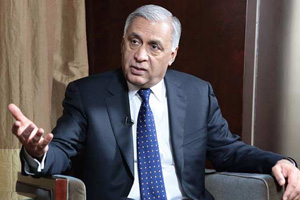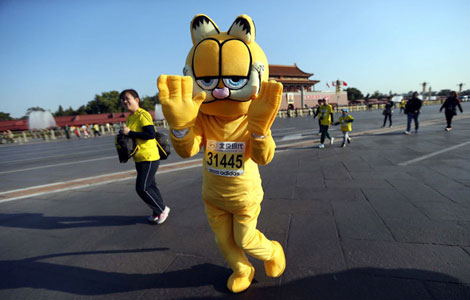The year of Chinese Dream
Updated: 2013-12-14 07:58
By David Gosset (China Daily)
|
||||||||
The abolition of the laojiao system, or re-education through labor, the change in the family planning policy, the constitution of a leading group to conduct a wide range of economic and financial reforms, and the establishment of a national security committee form a series of well-calculated decisions which will perfect the way China is governed.
"Modern China" is interconnected with "global China", the most significant factor of change for the world. Chinese goods, technology, businesspeople, students, tourists, capital and culture are reaching every corner of the globe through countless 21st century silk roads.
In an upgraded version of the Tang Dynasty (AD 618-907), China, literally the Middle Kingdom, is becoming increasingly cosmopolitan, but it also projects itself globally with the awareness that interdependence and cooperation characterize the 21st century. In the Chinese Dream, peace is to "global China" what progress is to "modern China", a conceptual reference and a project.
The expansion of "global China" is not accompanied by any missionary spirit. Its horizon is not hegemony or even global leadership but the return to the Middle Kingdom's ethos of centrality.
The announcement of an Air Defense Identification Zone, which covers the Diaoyu Islands, should be interpreted for what it is, a defensive mechanism already used by the US and Japan, and certainly not an offensive operation. It is obviously a masterstroke altering the Asian geopolitical status quo, since it invites the world to gradually recognize China's mapping of the East China Sea. The US administration has already asked US commercial airlines to abide by Beijing's new policy.
"Global China" is not only the increasing Chinese presence abroad, from stations in Antarctica to the North Sea route of the Arctic, but it is also an age of space travel and discovery. The Xi decade started with the launch of the Chang'e-3 and its moon rover, another significant step in the Chinese exploration of deep space.
The contrast is striking between the West's attempts to preserve the status quo and China's making of a new world. The former believes that the post-global financial crisis period can be a copy of the pre-crisis situation; the latter anticipates a future that will increasingly conform to its interests and intentions. As never before, globalization rhymes with Sinicization.
Distinct from the American Dream, the Chinese Dream cannot be a narrative of pure newness. It is the imagining of a better future with the memory of 4,000 years of history, a movement of renaissance expressed in the vision of "civilizational China".

 Two students wounded in US school shooting
Two students wounded in US school shooting
 21 died in Xinjiang coal mine explosion
21 died in Xinjiang coal mine explosion
 Postgraduates get hard lessons at job fair
Postgraduates get hard lessons at job fair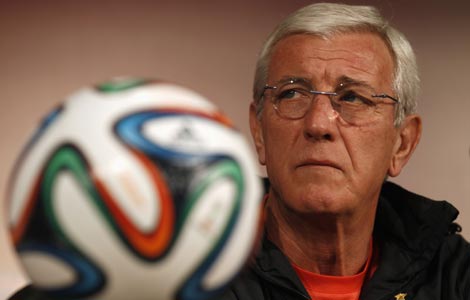
 Lippi confident with Guangzhou's opener
Lippi confident with Guangzhou's opener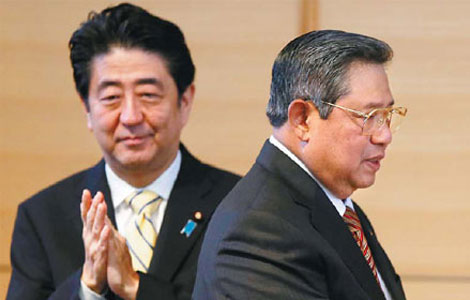
 ASEAN cautious on air zone debate
ASEAN cautious on air zone debate
 Havens of hope open their arms to forsaken infants
Havens of hope open their arms to forsaken infants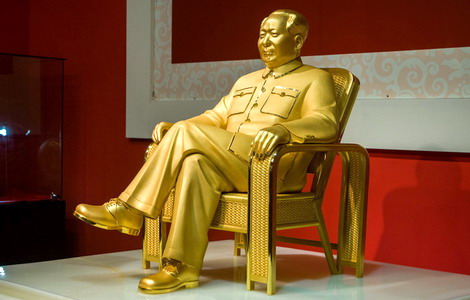
 Golden statue to mark anniversary of Mao's birth
Golden statue to mark anniversary of Mao's birth
 New Sanlu seeks to shake off image tainted by scandal
New Sanlu seeks to shake off image tainted by scandal
Most Viewed
Editor's Picks

|

|

|

|

|

|
Today's Top News
US paves way for in-flight cell phones
ASEAN cautious on air zone debate
Top leaders vow to steer steady path
BYD dismisses 'inaccurate and misleading' reports
Execution may hit co-op projects
Two wounded in US school shooting
Gift ban applies to festivals: official
UPS to deliver more parcels in China
US Weekly

|

|

